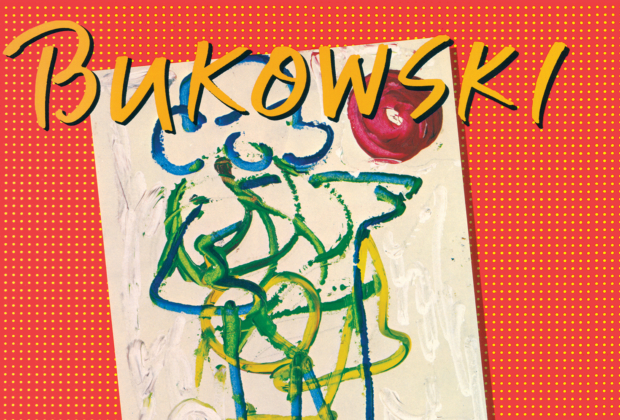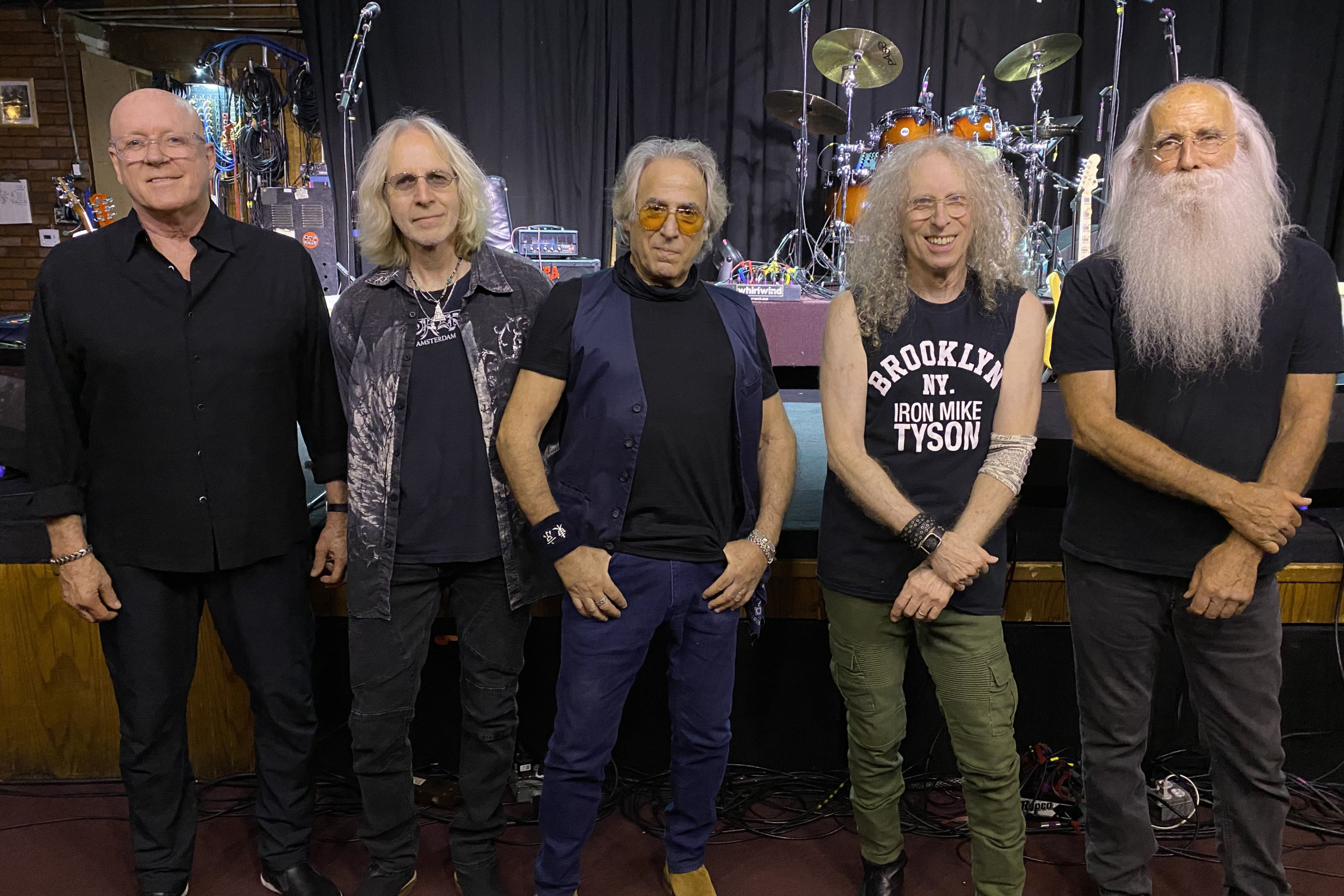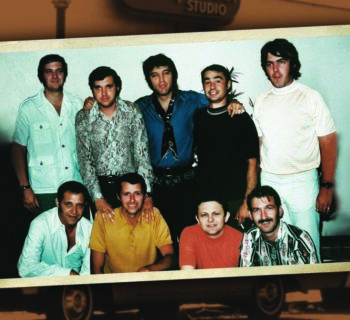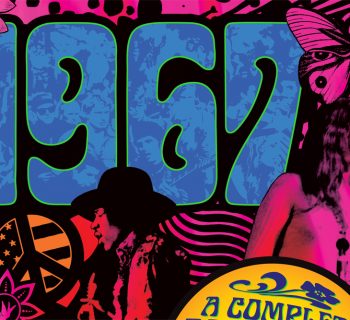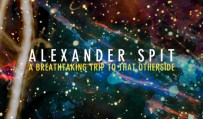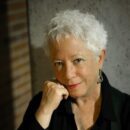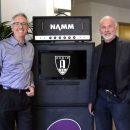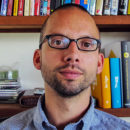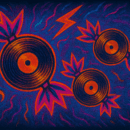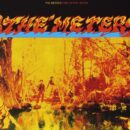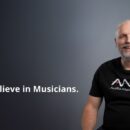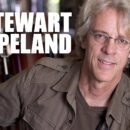August 16, 2020 Marks the 100th birthday of short story writer, columnist, poet and novelist Charles Bukowski, born Heinrich Karl Bukowski in Andernach, Germany, who relocated with his parents to Los Angeles California at age 3.
His literary work and perceived lifestyle has influenced numerous writers, actors, musicians, and songwriters from Tom Waits to the Arctic Monkeys who referenced him in “She Looks Like Fun” on Tranquility Base Hotel & Casino.
Richard Ashcroft of the band Verve named his debut solo album Alone With Everybody after a Bukowski’s poem. In interviews, Ric Ocasek of the Cars and Nirvana’s Kurt Cobain hailed him.
A slew of bands have name-checked Bukowski in lyrics. Modest Mouse, the Red Hot Chili Peppers, and Kasabian. The Boo Radleys’ “Charles Bukowski Is Dead.” Dave Alvin’s Museum of the Heart album name checks Bukowski in “Burning in Water Drowning in Flame.” There’s even a Florida-based group Hot Water Music that took their moniker from his collection of stories of the same name. U2 on Zooropa paid tribute to him with “Dirty Day.”
On August 21, 2020 the Real Gone Music record label celebrates Bukowski’s birthday with Charles Bukowski Reads His Poetry, a limited 100th Birthday Vomit Vinyl Edition of his 1972 release on John Fahey’s Takoma label, from a September 14, 1972 recital.
John Van Hammersveld designed the original album cover graphics. Van Hamersveld created LP covers for the Rolling Stones and the Beach Boys.
A Real Gone Music statement describes the product limited to 1,000 copies.
“Offers Observations and Vignettes Drawn from Life’s Darker Side, Focusing on Perversions, Poverty, Drunkenness, Gambling, and Bodily Functions (Including the Bodily Function most mentioned in Bukowski’s Writings, Vomiting) Shocking but Life-Affirming at the Same Time, the Material Brings Humanity to Its Transgressive Themes And Bukowski’s Bemused Air and Self-Deprecating Humor Lend Him an Everyman Quality.”
Daniel Weizmann edited the book Drinking With Bukowski Recollections Of The Poet Laureate of Skid Row published by Thunder’s Mouth Press in 2006, featuring a front cover illustration by R. Crumb. I was invited to contribute. In addition I recommended pop culture historian/author Barry Miles to participate. In 1969 Miles was the label manager of the Beatles-owned Zapple Records, an Apple Records subsidiary run by Paul McCartney’s friend Barry Miles. It was a budget division intended for spoken word and avant-garde recordings. Barry recorded William Burroughs, Richard Bautigan, and Allen Ginsberg for the label. During February 1969 Miles’ Ampex 300 tape recorder and microphone captured Bukowski inside his East Hollywood apartment at 5125 ½ De Longpre Ave.
Celebrating Bukowski’s 100th birthday and ongoing legacy, I wanted to display my original, non-edited expanded memoir tribute to him assembled before Daniel Weizmann’s book was first assembled and published.
In the late sixties I first read Bukowski’s weekly newspaper Notes of a Dirty Old Man column in The Los Angeles Free Press when I was in high school and later during college in Southern California.
Bukowski's work in Art Kunkin’s The Los Angeles Free Press and John Bryan’s Open City was raw and regional. His poems and stories were eventually republished in collected volumes by John Martin’s Black Sparrow Press (now HarperCollins/Ecco Press).
Around 1972, I was published in The FREEP which ran an interview I did with keyboardist Brian Auger, and I was invited to their office parties.
I came to one of Bukowski’s poetry readings in 1972 at the Papa Bach Bookstore in West Los Angeles. Charles was angry and combative with the audience of 60. Poet/actor Harry E. Northup was there and I met the store's owner John Harris. I would work with both of them in the future.
I sat near Bukowski in 1975 at a Rolling Stones’ Inglewood Fabulous Forum concert. He reviewed the show for Creem Magazine and I covered it for Melody Maker.
In 1976, I went over to the Free Press Hollywood Boulevard office for a party. Charles Bukowski was at this get-together. We were formally introduced.
I think it was Charles who suggested to a friend of mine to make a liquor store run across the street.
Then Bukowski started to make a move like professional baseball player Maury Wills on the Chavez Ravine diamond stealing a base bag.
I monitored his actions like viewing a slow-motion Zapruder film. Bukowski approached a friend’s wife. She had a ring on her finger. He attempted some suggestive talk. She handled the awkward proposition, laughed, but was a bit shaken afterwards.
I seem to remember I tapped Bukowski on the shoulder, uttering something like “Hey, man, that wasn’t very nice.”
“Shut up!” was his immediate response.
Then the beer arrived. The man and his wife, now a lawyer and author, split the scene.
I drove back home. I thought Bukowski was rude. I don’t care if years later he would call it “research.”
I have a fond memory of Bukowski’s 1976 Troubadour club appearance on Santa Monica Blvd. Louie Lista was the bartender, Paul Body the door man got one of his Bukowki books autographed, and the club's manager, Robert Marchese, who previously was Richard Pryor's record producer, oversaw the engagement.
Marchese asked Bukowski if he needed anything before the gig “A six-pack of Heineken beer.” It was devoured rather quickly. Bukowski met his future wife Linda Lee Beighle at this show.
Under that gruff exterior Bukowski was a person who seemed to have stage fright when describing the social, sexual, economic, cultural ambiance of Los Angeles to us.
I talked with singer/songwriter Stan Ridgway, formerly with Wall of Voodoo, who witnessed Bukowski’s Troubadour booking. Stan enjoyed Bukowski’s “direct writing style, the funniest, the way of turning a very bleak situation into something that he overcame."
Denny Bruce, the original drummer with The Mothers of Invention during their 1965 period, was also in attendance. Denny was a record producer who did albums with Leo Kottke, John Fahey, John Hiatt and the Fabulous Thunderbirds. Bruce was co-owner of Takoma Records, a groundbreaking roots music independent label.
Denny had met Bukowski a few times over the years, once at his apartment, and at a mid '70s reading in Culver City at the Robert Frost Auditorium with their mutual friend, performer Bob Lind of "Elusive Butterfly" fame. Lind’s parents had flown in from Denver for the occasion, and they cringed when a passionate Bukowski berated the small audience for “not being good enough to hear this man’s music.”
In 1978, or '79, Denny's label released Charles Bukowski Reads His Poetry, a live LP culled from a Bay Area San Francisco performance.
When that LP was first issued, a small press party was held on Sunset Boulevard, down the street from the Takoma/Chrysalis office at the landmark Scandia restaurant that served tasty Swedish meatballs.
At the reception Bukowski got totally drunk, freaked out some of the restaurant patrons, and was tossed out of the establishment.
Excerpts of that same Berkeley date were utilized in the 1973 Taylor Hackford-directed and -produced Bukowski documentary that was broadcast on KCET-TV, Los Angeles’ Public Broadcasting System station. During 1971-1973 Hackford helmed several films at KCET including the Cat Stevens documentary Boboquivari and a Leon Russell live in-studio session Homewood.
In 2007 I talked to Hackford at the Mods & Rockers Film Festival event at the Egyptian Theatre on Hollywood Blvd. honoring the songwriting team of Mike Stoller and Jerry Leiber.
Taylor mentioned that while on the plane ride to San Francisco for the Bukowski reading and taping, Bukowski asked him to select the poems to be read at the appearance.
Hackford also lamented that many years later he approached KCET about putting together a DVD of the unaired footage and previously not included performances, and learned the station had wiped the footage from their library.
In 1980 Denny Bruce arranged to produce another live Charles Bukowski taping at the Sweetwater Inn in Redondo Beach, a roots, blues and pop music venue and asked me to be involved as production coordinator.
Denny had done his homework and knew the Bukowski book catalog. He lent me some of the titles before we rolled the tape machines.
A few weeks before, Joe Wolberg at City Lights in San Francisco had mailed to Denny’s home in Bel-Air the first treatment for the proposed film of Bar Fly, that director Barbet Schroeder was putting together with James Woods and Karen Black in the lead roles. When the movie was cast, it starred Faye Dunaway and Mickey Rourke.
We jumped on the 405 Freeway and schlepped over to The Sweetwater in Denny's BMW.
I was introduced to Barbet who was setting up a film camera to capture the proceedings. He was impressed I was aware of his 1969 directorial debut More which utilized the music of Pink Floyd. Barbet was delighted that I knew Don Hall, the music coordinator who had been a deejay years ago on local radio station KPPC-FM. Pink Floyd wrote the soundtrack for La Vallee, his 1972 movie that was issued as the LP Obscured by Clouds.
As a teenager, Schroeder lived in France and studied at the Sorbonne in Paris. During a break, I told him about local Toho La Brea foreign movie house on La Brea Ave. in L.A. where his films along with other French New Wave directors like Jean-Luc Godard were screened. He howled when I admitted “I wasn’t into cinema with subtitles.”
This is a few years before Schroeder directed Single White Female.
I was given a full access pass and invited to view Schroeder's camera lens as he blocked shots around assisting Denny Bruce at the soundboard. In 1985 Barbet produced a documentary The Bukowski Tapes.
The anticipation of this particular Charles Bukowski poetry reading reminded me of The Last Waltz, a music event I reviewed for Melody Maker in November 1976. And, like Bob Dylan, circa 1966-73, Charles Bukowski wasn't appearing often in public, especially around his hometown.
Ninety percent of the crowd seemed to be students from Cal State Long Beach. Eddie Call, then in the Marina Swingers band, was the bartender. He and staff were instructed to serve Bukowski. Call later informed me there was no tip at the end of the night.
Jim Dunfrund, of KXLU-FM was there who hosted Surf Wave on the radio station at Loyola Marymount University.
Drummer/writer Phil Bunch, now the co-founder and producer of world beat pop music group Tea, stood at the side of the stage. With his former band The Bros he had played the first gig the club had booked, and later gigging in Jimmy Discount’s band with his neighbor guitarist Vince Gill.
Bunch, as a teenager, had even bought a hand-made custom bound copy at Either/Or Bookstore in Hermosa Beach of Bukowski’s Crucifix In A Deathhand. Phil offered a funny anecdote when he was in a meeting at the Open City newspaper office where Abbie Hoffman and Jerry Rubin were present, planning their Chicago 1968 democratic convention party motives and agenda. Bukowski stood up from the stairs where he was sitting and responded “Ever put yourself in the Old Man’s shoes?” He was referring to then President Lyndon Baines Johnson.
Writer Kirk Silsbee and his girlfriend, Cathie Gentile, also attended. Now married, they had seen Bukowski read in ’76 at Sweetwater, as did Michael Gira, Kirk’s boon coon from the El Camino College Art Department. Gira was years away from forming his band Swans but he was seriously writing poetry while living in a Hermosa Beach garage and scamming art money grants.
“At the Sweetwater there was a young guy,” Silsbee recalled, “opening for Bukowski. He looked like Jackson Browne, played the piano and sang those ‘sensitive guy’ songs that you used to hear in the ‘70s. At one point he asked for a white wine.
“Later, as Bukowski chugged his way through six-packs between poems and insults, he affected this sissified voice and said, ‘Could I have a white wine please?’ The place roared but the poor bastard asked for it.”
I had a terrific and educational time carrying Ampex 456 tape boxes, sorting out reels and testing microphones. Denny Bruce oversaw the recording operation like General George Patton and navigated the field like Hall of Fame footballer Jim Brown.
Denny had a hunch this "endeavor" extended way beyond the normal defined show time. I laughed when he said, "we might be going into an overtime game." I didn't realize what he was talking about. I found out later. It was apparent, that over the years, Bruce really wanted to do a proper recording with Bukowski. He'd been in discussion with Charles for a decade. At the Sweetwater club, Bukowski drank four bottles of wine out of a water tumbler.
There were a lot of geeks in the house. You know, guys with first edition books begging for autographs, frat rats shoving their own writings at Bukowski, "Check out my stuff on computer!" and a whole bunch of fan boys with ancient columns, now yellow with age, wanting Bukowski to personalize the newsprint with a signing.
A bouncer at the Sweetwater entrance looked at me and confided, “Hey…I’m used to ‘Blues Queers’ crowding the dressing room.”
There were some pretty good looking women in the house hugging, kissing and congratulating Charles.
One memorable moment occurred, as on cue from his self-penned biopic, a drunken Bukowski turned to Denny and myself asking, "Why does all the cunt show up at age 54?"
Did we not admire his honesty and candid observations on the page and public stage?
Afterwards, Denny asked me to guard the master tapes and equipment as he and Bukowski went to another room with Richard the club's co-owner.
Then there was a hassle. We knew the payment fee was taken care of well before the booking. In fact, the wad bulged out of Bukowski's front pocket.
Bukowski then pulled a penknife out and jabbed it right into the desk of the owner asking for his money, forgetting he’d already been paid.
Everyone tried to calm him down and then Charles reached for a smaller knife and proclaimed, "I'm producing steel, man."
Bukowski's friend, Joe Wolberg, managed to put him into a headlock and then took him away. There was a lot of static in the room and Bukowski's final words of the night were "the only reason you booked me into this clip joint was that you could hit on [his wife] Linda." He obviously loved her.
I even heard the next morning Phil Bunch was called at home by Richard who didn't dig what went down. But Phil had told him that Bukowski was the real thing, not "a phony or a poser."
Before the first version of Hostage came out I thought it would be a good idea for German film director, Wim Wenders, to write the liner notes for a projected German territory distribution. He was very receptive, invited me to the set of Hammett that he was doing for Zoetrope Studios. Michael Hacker and Tom Waits were always there. One From the Heart was in production. Tom wrote a poem on an album I produced, “Harvey Kubernik’s Throwing Another Party.”
Wim Wenders had been a music journalist and critic, liked the Germany-born Bukowski, and we all understood the market for a German audience that existed for his catalog. The liners didn't materialize, but nearly 20 years later I bumped into Wenders backstage at a Tom Waits concert in L.A. at the Wiltern Theater. We were reintroduced and he mentioned he still had the original disc I sent him.
In the early '80's I eventually asked poet/writer Kenneth Funsten to do the liner notes for the album.
I remember when the first pressing of the event was pressed, a vinyl-only Hostage was issued in the mid-'80's produced by Deny Bruce.
I sent a copy to teen scribe Danny Weizmann, then a student at U.C. Santa Cruz, and living in a college dormitory. He played the Hostage LP at full blast one night with some friends, and was asked to leave the dorm the following morning. Well, I always knew Hostage was a rock ‘n’ roll record.
I even had to talk to his mother about the incident but I also guaranteed her son would be a great writer and would get his Creative Writing B.A. but suggested over the phone for him to transfer to UCLA for graduation. He later wrote California Hardcore and is a voice in every one of my books.
In a twenty-five-year period before his death, I'd run into Charles Bukowski all over Southern California. One time in late December 1985 after visiting the Minutemen’s D. Boon.
Boon lived in the Point Fermin area, and the weekend just before he died in a car accident we had just done a show together at the Lhasa Club in Hollywood.
Boon and his band member Mike Watt directed me to a restaurant Seven Seas for a meal. The place was closed, so I drove over to Ports-of-Call in San Pedro to eat some cioppino. I entered the vast parking lot, and right next to me was a black BMW and out popped Charles Bukowski.
Charles had the Racing Form tip sheet in his hand and obviously on the way to the Hollywood Park racetrack. It was daytime. “Hank” nodded, smiled, and said hello behind his sparkling blue eyes.
Only a couple of days before I had been in the recording studio with poet John Thomas, one of the only poets Bukowski liked, in addition to Gerald Locklin. Thomas told me a hilarious story about the time he and Bukowski got kicked off the airwaves for their “use of language” one night at radio station KPFK-FM in North Hollywood.
Around 1983 Bukowski and I chatted at a screening of Ron Mann's Poetry In Motion documentary on Wilshire Blvd at The Four Star Theater in Los Angeles. The same room I first saw A Hard Day's Night, and where John Cassavetes filmed portions of his Opening Night film. I watched The Graduate there as well.
Bukowski and I had a dialogue. We rapped about the downtown Central Los Angeles Public Library and Los Angeles City College. He took a creative writing class at the school many years before I got my few credits in their literature department. Charles was caught off guard when I cited Los Angeles High School where he graduated from. I volunteered I was from Fairfax High School. “Kid, that’s in West Hollywood… I live in East Hollywood.”
We worked different sides of Western Avenue. I never drank and frequented Ole Sole Mio Pizza parlor. Bukowski cruised Stan's Books, an adult bookshop and went inside bars.
Bukowski toiled on his Lazarus typewriter with a portable radio always tuned to KUSC-FM, the Los Angeles classical radio station.
I went to the October 30, 1993 U2 concert at Dodger Stadium in Los Angeles. Drummer Larry Mullen of the band did a stage dedication of “Dirty Old Town” to Bukowski. Bono had sent a car for Charles and his wife Linda to attend the show.
Charles Bukowski died on March 9, 1994 in San Pedro, California at age 73 of Leukemia.
I never realized how popular he was in France. Paul Body told me in the last half of the ‘80s a television station in Paris signed off every night with Bukowski reading one of his poems on screen!
This was one prolific cat who swung constantly and hit for the literary cycle starting in middle age through the end of his life. His first novel was published at age 49. That was inspiring to me. My first book deal happened at 51.
In August 1985 I received a frantic evening phone call from Andy Paley, record producer, musician, and a Brian Wilson co-writer.
I played on a Paley Brothers recording session at Gold Star around 1978 that Phil Spector produced, “Baby, Let’s Stick Together.” Phil Seymour, KROQ-FM DJ Rodney Bingenheimer and I provided handclaps on the studio date with members of the Wrecking Crew. It’s out in Japan on a Paley Brothers album.
Rodney, Andy, his brother Jonathan and I also added some percussion and handclaps on the Spector-produced Ramones’ End of the Century album. In 2002, it was reissued on CD and I penned the liner notes for the package.
Andy Paley had been very involved in the Dick Tracy soundtrack and needed to get a signed Charles Bukowski book for a wedding gift as soon as possible. On my message machine, he said he'd explain the urgent request later to me.
So I called back, left a voice mail and told him to go over to the Baroque Book Store on Las Palmas Ave. in Hollywood owned by Red Stodolsky, a good friend of Bukowski, who carried some rare autographed Bukowski books.
Andy left a very pleasant thank you on my machine after he had gone to the bookstore and bought an item. I thought "What a cool wedding present."
I didn't talk to Andy for ten years, but in 2003 I saw him at a birthday party for Bingenheimer.
"By the way…How did that Bukowski book wedding present ever work out?" I asked. “Well…let me tell you,” Andy replied and sighed. “It was a wedding gift for Madonna and Sean Penn. And, months after the wedding, Madonna called me one night. ‘Thanks for that Bukowski book. It’s contributing to the breakup of my marriage. He wants to be Bukowski now!’” •
“You Never Had It — An Evening With Charles Bukowski”: Documentary. With Charles Bukowski, Silvia Bizio and Linda Lee Beighle. Directed by Matteo Borgardt. (Not rated but film contains adult topics and language. 55 minutes.) Available to stream through Balboa, the Roxie, Vogue and Rialto Cinemas virtual theaters starting Friday, Aug. 7.
HARVEY KUBERNIK is the author of 19 books, including Canyon Of Dreams: The Magic And The Music Of Laurel Canyon and Turn Up The Radio! Rock, Pop and Roll In Los Angeles 1956-1972. Sterling/Barnes and Noble in 2018 published Harvey and Kenneth Kubernik’s The Story Of The Band: From Big Pink To The Last Waltz. For 2021 they are writing and assembling a multi-narrative book on Jimi Hendrix for the same publisher.
Otherworld Cottage Industries on July 30th published Kubernik’s 500-page book, Docs That Rock, Music That Matters, featuring Kubernik interviews with D.A. Pennebaker, Albert Maysles, Murray Lerner, Morgan Neville, Michael Lindsay-Hogg, Andrew Loog Oldham, John Ridley, Curtis Hanson, Dick Clark, Travis Pike, Allan Arkush, and David Leaf, among others.
Kubernik’s writings are in several book anthologies, most notably The Rolling Stone Book Of The Beats and Drinking With Bukowski. He was the project coordinator of the recording set The Jack Kerouac Collection.
During 2006 Harvey Kubernik spoke at the special hearings initiated by The Library of Congress that were held in Hollywood, California, discussing archiving practices and audiotape preservation.
In 2020 Harvey served as Consultant on Laurel Canyon: A Place In Time documentary directed by Alison Ellwood which debuted om May 2020 on the EPIX/MGM television channel.
Kubernik has just penned a back cover book jacket endorsement for author Michael Posner’s book on Leonard Cohen that Simon & Schuster, Canada, will be publishing this fall 2020, Leonard Cohen, Untold Stories: The Early Years.

